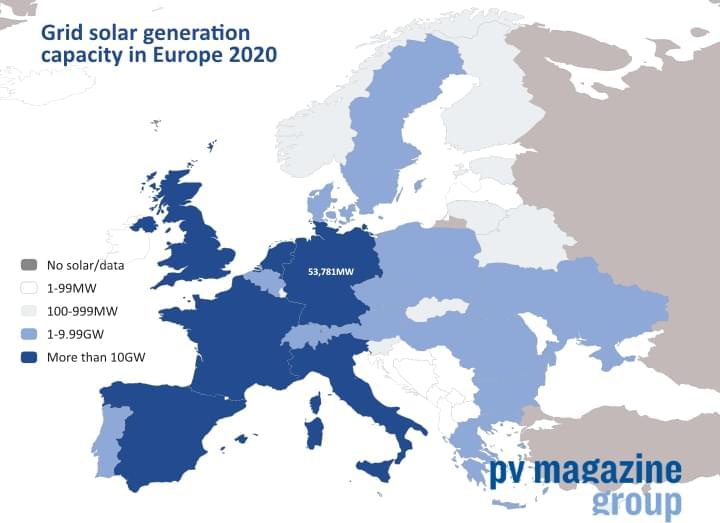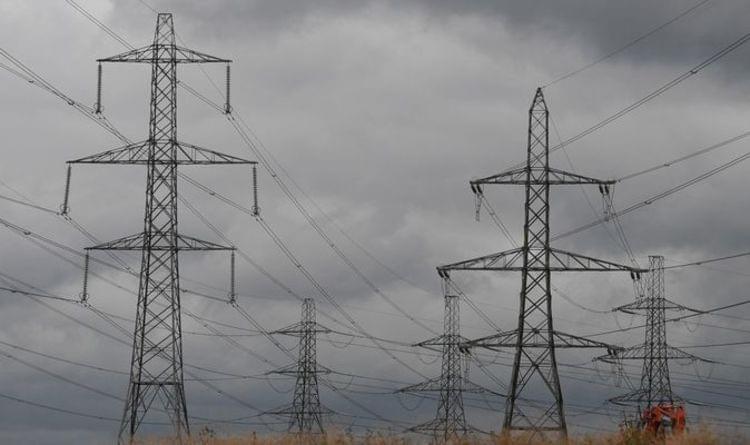The latest numbers released by EU data body Eurostat indicate renewables, including hydropower, contributed 37% of Europe’s gross electricity consumption in 2020, up from 34% a year earlier.




Earth is far from a solid mass of rock. The outer layer of our planet – known as the lithosphere – is made up of more than 20 tectonic plates; as these gargantuan slates glide about the face of the planet, we get the movement of continents, and interaction at the boundaries, not least of which is the rise and fall of entire mountain ranges and oceanic trenches.
Yet there’s some debate over what causes these giant slabs of rock to move around in the first place.
Amongst the many hypotheses put forward over the centuries, convection currents generated by the planet’s hot core have been discussed as an explanation, but it’s doubtful whether this effect would produce enough energy.
Next stop? Mass production.
With that in mind, we asked Zajac how he believed the AirCar will compete with the oncoming surge of eVTOL aircraft: “AirCar is a completely different category of vehicle,” Zajac replied. “Whereas AirCar is fully taking advantage of the aerodynamic forces during flight and the lifting force is generated by fixed wings and [its] lifting body, the VTOLs are [essentially] helicopters. As a result, VTOL vehicles have low energy efficiency, shorter range, and smaller cruising speeds. I believe both will be used side by side for different purposes.” The question does remain on how many people will be willing to shell out for a flying car that needs access to a runway for takeoff. With Morgan Stanley predicting the flying car sector will be worth $1.5 trillion by 2040 and KleinVision having flight certification under its wings, we may be very close to finding out. has played a central role in the twists and turns of Associate Professor Areg Danagoulian’s life.
As a boy, it led him first to mathematic.

As the world’s energy demands increase, so does our consumption of fossil fuels. The result is a massive rise in greenhouse gases emissions with severely adverse environmental effects. To address this, scientists have been searching for alternative, renewable sources of energy.
A main candidate is hydrogen produced from organic waste, or “biomass,” of plants and animals. Biomass also absorbs, removes, and stores CO2 from the atmosphere, while biomass decomposition can also bring us ways to negative emissions or greenhouse gases removal. But even though biomass heralds a way forward, there is still the question of the best way to maximize its conversion into energy.
There are currently two main methods for converting biomass into energy: gasification and pyrolysis. Gasification puts solid or liquid biomass at temperatures around 1000°C, converting it into gas and solid compounds; the gas is called “syngas” while the solid is “biochar.”

“Penske Truck Leasing and National Grid are among the first companies adding preproduction E-Transit vans to their fleets for a variety of uses, including testing the BlueOval™ Charge Network, America’s largest public charging network, plus depot fleet charging tools that monitor and help manage energy usage,” Ford explained.
Maybe The US Postal Service Will Electrify After All
That brings us to the US Postal Service, owner of a fleet of 231,541 vehicles of various types. USPS expects to roll up to 165,000 new vehicles into the fleet under a 10-year contract signed last spring with the firm Oshkosh Defense, a subsidiary of Oshkosh Corporation.

IRENA says green hydrogen could disrupt global trade and bilateral energy relations, reshaping the positioning of states with new hydrogen exporters and users emerging.

Indian billionaire Mukesh Ambani is going big on green energy.
His conglomerate, Reliance Industries, announced Thursday that it would allocate a whopping 6 trillion rupees (approximately $80.6 billion) to renewable power projects in the western Indian state of Gujarat, where it hopes to help generate a million new jobs.
The bulk of that money — about $67.7 billion — will go toward a new power plant and hydrogen system, the company said in a stock exchange filing. Reliance plans to make the massive investment over a 10-to-15-year period, and has already begun scouting for land for the 100-gigawatt capacity site.
As NASA prepares to send astronauts further into the cosmos than ever before, the agency aims to upgrade production of a critical fuel source: food. Giving future explorers the technology to produce nutritious, tasty, and satisfying meals on long-duration space missions will give them the energy required to uncover the great unknown.